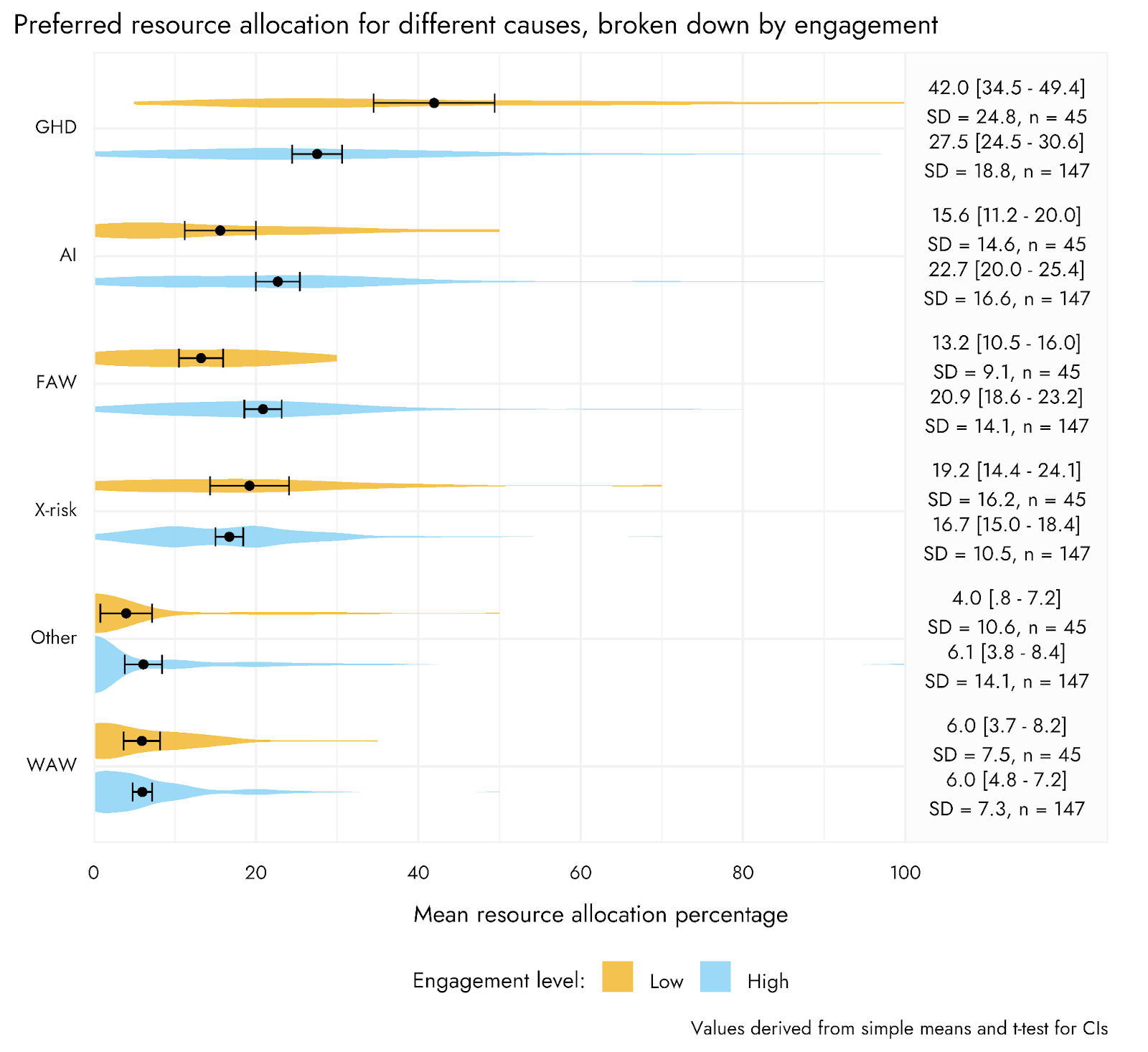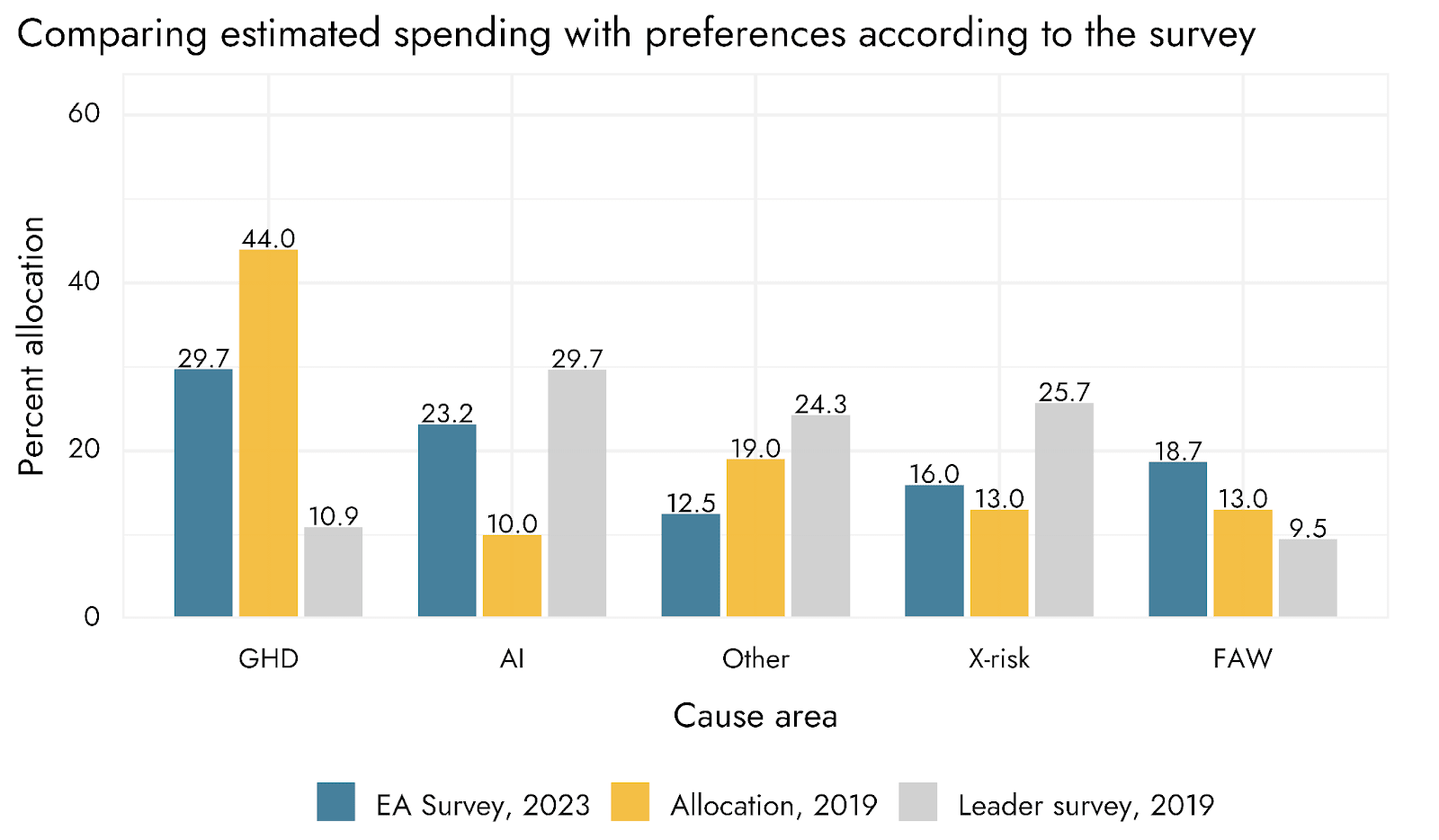When you comment on your vote on the debate week banner, your comment will appear on this thread. Use this thread to respond to other people's arguments, and discuss the debate topic.
You should also feel free to leave top-level[1] comments here even if you haven't voted. As a reminder, the statement is "It would be better to spend an extra $100m on animal welfare than on global health".
If you’re browsing this thread- consider sorting by “New” and interacting with posts that haven’t been voted or commented on yet. There are a lot of comments!
Also- perhaps don’t vote karma below zero for low effort submissions, we don’t want to discourage low effort takes on the banner.
- ^
The first comment in a thread is a top-level comment.



I am delighted by Michael's comments and intend to reply to them all once I've had the chance to carefully examine and consider his linked materials.
Overall, I feel quite disappointed in this comment thread for being in what I would call an "activist" mindset, where the correctness of one's view is taken for granted, and the focus is on practical details of bringing about change in the world in accordance with this view.
I think the question of prioritization of human welfare versus animal welfare should be approached from a "philosopher" mindset. We must determine the meaning and moral weight of suffering in humans and non-humans before we can know how to weigh the causes relative to each other.
Michael StJules is one of the few animal welfare advocates I've encountered who is willing to engage on this philosophical level.
Here's some quotes from elsewhere in this comment section that I think exemplify what I mean by activist mindset rather than philosopher mindset: (Single line separators indicate the comments were in a thread responding to each other)
emre kaplan
Disclaimer: I'm funded by EA for animal welfare work.
Some thoughts:
a. So much of the debate feels like a debate on identities and values. I'd really love to see people nitpicking into technical details of cost-effectiveness estimates instead.
... (Truncated)
Ariel Simnegar
I've run into a similar dilemma before, where I'm trying to convince non-EAs to direct some of their charity to AMF rather than their favorite local charity. I believe animal welfare charities are orders of magnitude more cost-effective than AMF, so it's probably higher EV to try to convince them to direct that charity to e.g. THL rather than AMF. But that request is much less likely to succeed, and could also alienate them (because animal welfare is "weird") from making more effective donations in the future. Curious about your thoughts about the best way to approach that.
CB
Another option, if they're sensible to the environment, is to redirect them to charities that are also impactful for sustainability, such as The Good Food Institute. According to the best guess by Giving Green, they can avoid 17 tons of CO2eq for 50$.
This way, they can make a positive contribution for the environment (not to mention the positive impact on human health pandemics).
I've done it for a charity that does similar stuff in my country and at the very least people didn't give any pushback and seemed comprehensive. You can mention concrete stuff about the progress of alternative proteins like they're the default choice at burger king.
Jason
I have a sense that there could be a mutually beneficial trade between cause areas lurking in this kind of situation, but it would be tricky to pull off as a practical manner.
One could envision animal-welfare EAs nudging non-EA donors toward GiveWell-style charities when they feel that is the highest-EV option with a reasonable probability of success, and EA global-health donors paying them a "commission" of sorts by counterfactually switching some smaller sum of their own donations from GH to AW.
In addition to challenges with implementation, there would be a potential concern that not as much net money is going to GH as the non-EA donor thinks. On the other hand, funging seems to be almost an inevitable part of the charitable landscape whether it is being done deliberately or not.
Ben Millwood
Yeah, this seems a little... sneaky, for want of a better word. It might be useful to imagine how you think the non-EA donors would feel if the "commission" were proactively disclosed. (Not necessarily terribly! After all, fundraising is often a paid job. Just seems like a useful intuition prompt.)
Stijn
"So it is more important to convince someone to give to e.g. the EA animal welfare fund if they were previously giving to AMF than to convince a non-donor to give that same amount of money to AMF." More generally, I think it is more important to convince an EA human health and development supporter to diversify and donate say 50% of the donation budget to the most effective animal welfare causes, than to convince a non-EA human charity supporter to diversify and donate say 50% of the donation budget to AMF or similar high-impact human-focused charities.